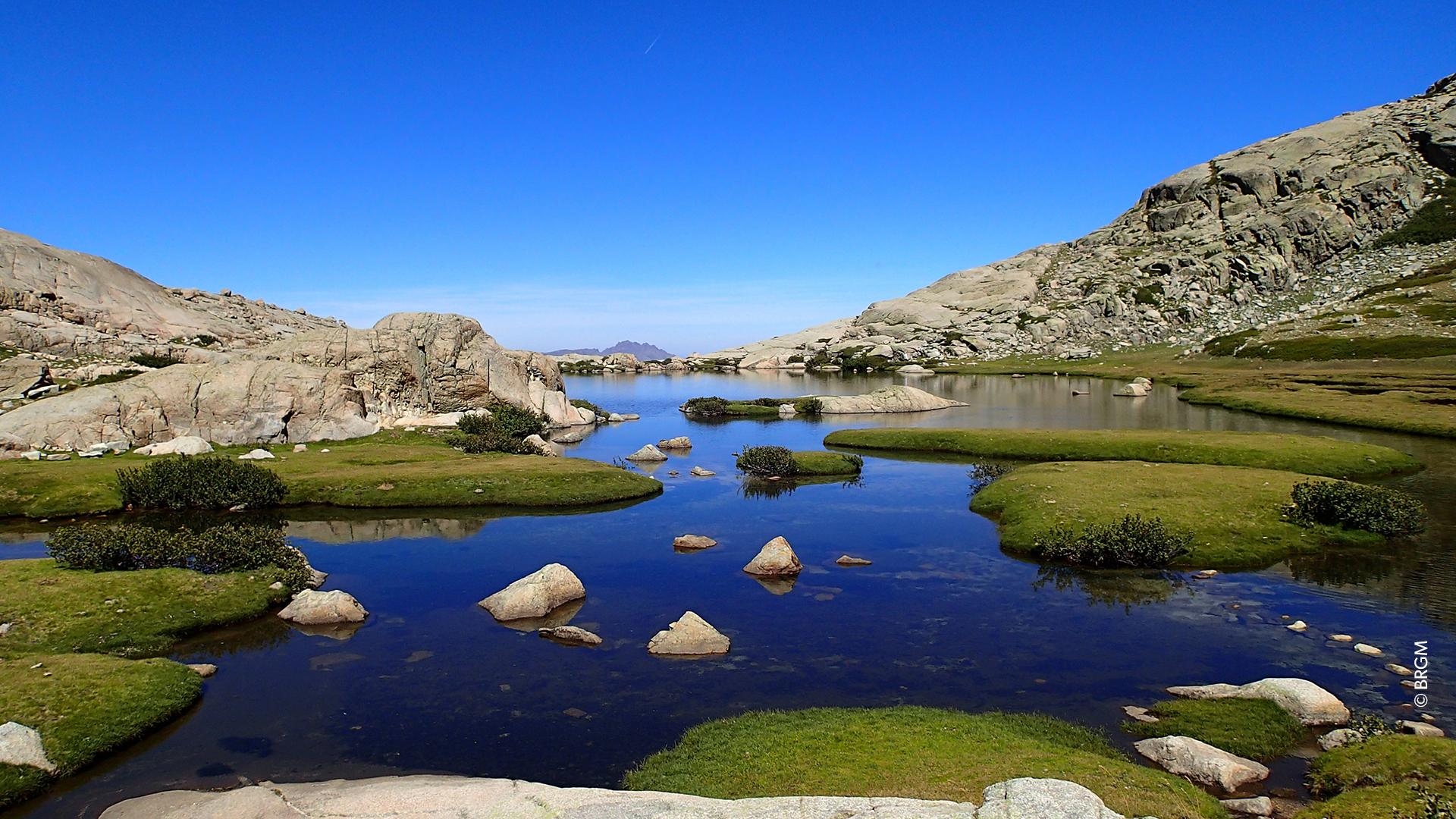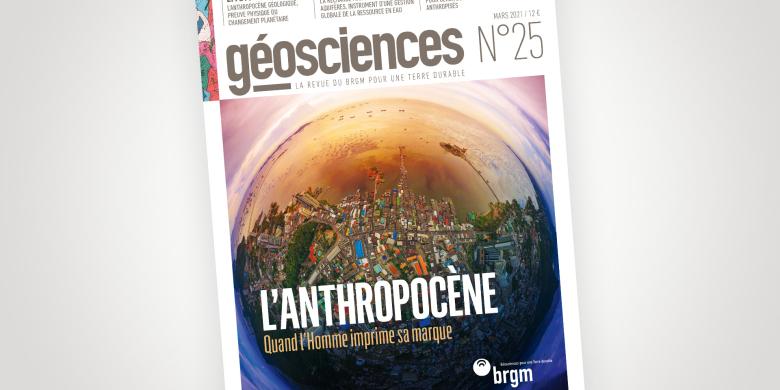
Portrait of François Gemenne, a specialist in geopolitics and the environment and author of the Atlas de l’Anthropocène.
© Alexandre Paumard
Extract from the interview published in the Géosciences journal no. 25: “The Anthropocene, the footprint of Humankind”.
François Gemenne is an FNRS researcher at the University of Liège and Director of the Hugo Observatory. A member of the IPCC, he is a specialist in geopolitics and the environment, which he teaches at the Paris Institute of Political Studies (Sciences Po) and the Sorbonne.
Can you explain what is meant by the Anthropocene?
François Gemenne: There are two definitions of the Anthropocene. The first is the geological definition of the term, i.e., the creation or not of a new geological era, which would be characterised by the impact of humankind on the planet and its capacity to transform the globe. The Stratigraphy Commission of the International Union of Geological Sciences will decide on this matter. It is still considering the issue. There is another, more political definition of the Anthropocene. We have now realised that it is no longer possible to consider the Earth and its occupants as separate entities, because the action of humans has had a major impact on their habitat. This is why I wrote the Atlas of the Anthropocene, since environmental issues are usually dealt with in public debates. I wanted to show that they were linked, that it was a global crisis. Similarly, in dealing with these issues, one cannot separate the social sciences from the so-called fundamental sciences. For a long time, it was considered that one had nothing to do with the other, but this is nonsense: the carbon cycle is closely linked to the price of carbon, for example.
What do you see as the major global impacts of the Anthropocene?
F. G.: I think that the main impact of the Anthropocene is yet to come. In fact, it is difficult to say what it will be, because it will depend on us, on our ability to take measures to combat the effects of human disturbance on the planet. Secondly, certain indicators of the Anthropocene are obvious: climate change, the decline in biodiversity, soil pollution, etc. This last phenomenon, which is particularly worrying, often goes under the radar. People don't pay attention to it, because it is an invisible pollution. But, whether generated by pesticides, heavy metals or waste of various kinds, it will remain present for centuries! There is also the problem of coastal flooding, which will get worse due to global warming... with the rise in sea levels, in 25 years Vietnam will have lost 10% of its territory! Major infrastructure projects will be needed to protect the land. The question is: which territories and which populations will be protected? I doubt that the most vulnerable populations will be considered a priority.
What will be the main impacts in France?
F. G.: France will experience an increasing loss of biodiversity and diminishing forests. Heat waves will become more frequent, leading to more forest fires and droughts. Economic activities, such as the wine industry and tourism, will be affected. In cities, the problem of urban heat islands will increase. This will have more and more impact, especially if we are confined again because of an epidemic.
We will have to review the spatial planning as well. Housing and business areas at sea level that are vulnerable to coastal flooding will have to be relocated.

Environmental issues are usually treated separately in public debates. I wanted to show that they were linked.
So how do we adapt?
F. G.: We will have to cut our losses. We will have to accept that we cannot go back on certain issues. For example, we will have to mourn certain species, certain temperatures, certain activities. Temperature changes and sea level rise, for example, are irreversible. In the future we will have to learn to organise migration and distribute people from uninhabitable to habitable areas. For example, in Indonesia, the government has chosen to move the country's political capital to the island of Borneo, as Jakarta will be partly under water within 30 years! The problem is that we always wait until the last moment before acting.
Are there any grounds for hope?
F. G.: Fortunately, some infrastructures dedicated to environmental issues have been created, namely changes in lifestyles, housing techniques and changes in migration patterns. The polls show that the general public has become much more aware of environmental issues. The press is paying much more attention to environmental issues. The Atlas was a publishing success, whereas five years ago no one would have been interested in a book on the Anthropocene. This is to the credit of young people who have become much more involved. This is going to be a factor in the upcoming elections. However, I think that if there is no massive reorientation, no deep questioning of investments and public and private subsidies, we will not manage to change the way things are going. We have to work at a macroeconomic level! On the climate issue, for example, individual behaviour can only influence 20-40% of carbon emissions. And if there is no structural investment, people will get discouraged. Solutions will have to be found without making the population nervous. We must be careful not to antagonize some of them. Some small steps can alienate people and undermine long-term change.
Géosciences journal No.25: the Anthropocene, the footprint of Humankind
The term “Anthropocene” was coined by climatologist Paul Crutzen at the beginning of the 2000s. It means that, for the first time since the birth of humanity, humankind has left such a strong impact on the planet that it could be considered as a geological force in and of itself, thus potentially forming a new geological era.
This edition of BRGM's Géosciences journal starts with the geological controversy as to whether the anthropocene era can be considered to be a new geological epoch, in an article by Colin Waters, a member of the stratigraphy committee. He then discusses humankind’s major impacts on the planet and how to correct them.
The issue also includes the interviews of François Gemenne, author of the Anthropocene atlas, and Jean Daniel Rinaudo, a sociologist-economist, specialising in water resources. A portfolio on the works on the Orleans grit chamber and a field notebook on soil depollution techniques recorded at the Prime experimental pilot facility, complete the edition.







